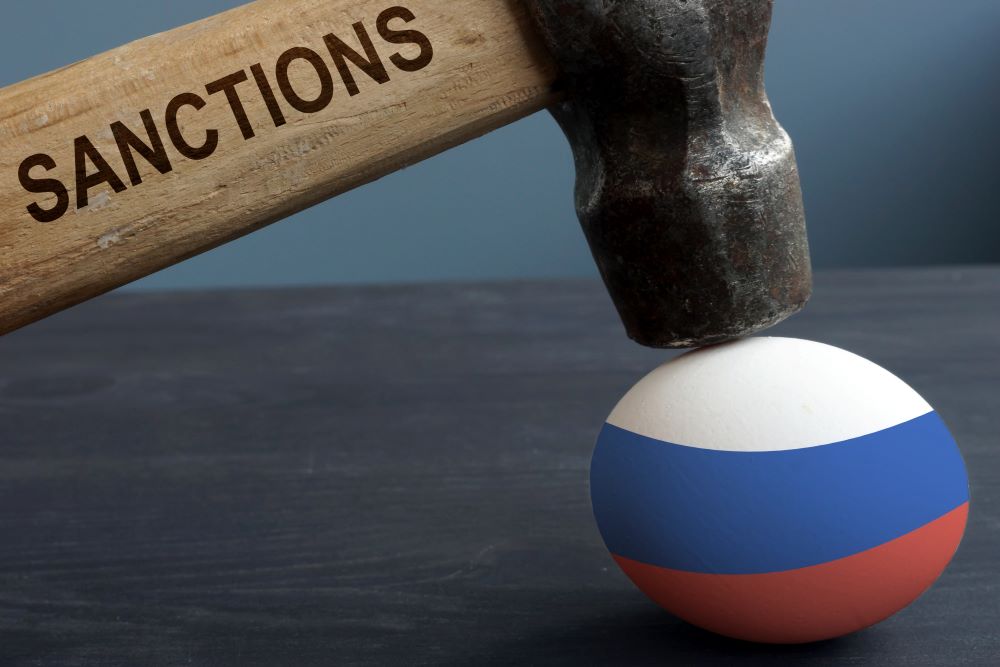
Russia is effectively imposing currency controls in a bid to prevent the rouble from further weakening, according to a report in the FT.
Putin’s administration is restricting western companies that are selling their assets in Russia from withdrawing their earnings from these sales in dollars or euros.
Companies exiting Russia are being forced to agree a sale price in the Russian currency or face significant delays and potential losses.
‘Absolute priority’
Kremlin spokesperson Dmitry Peskov told the FT that maintaining the strength of the rouble was an “absolute priority” and that Russia was following “its own interests and benefits” rather than those of foreign companies.
It’s not the first time Putin has sought to limit the impact of the war in Ukraine on the currency. In July, his administration limited how companies could withdraw sales proceeds, with firms presented with two options: either to have their money transferred to restricted ‘C’ type accounts at a Russian bank or to cash out in roubles and receive their proceeds via a normal Russian account.
Russia’s central bank has also increased interest rates four times since August, reaching 15%.
Declining value
The move comes as Putin is faced with a 20% decline in rouble’s value since the start of the year, the Telegraph reports.
Investing.com further reports that the currency crossed the Rbs100 to the US$ threshold this year.
Sanctions
Following Putin’s invasion of Ukraine in February 2022, western nations have imposed a wide range of sanctions on Russia in a bid to damage its economy. Several western brands also withdrew or reduced their activities in Russia in response to the war.
The Economics Observatory claims that these sanctions have “hindered Russia’s production of many goods and led to a widening budget deficit”.
However, it adds that while the country’s federal government budget could reach 4-5% of GDP this year, this “does not need to be a disaster for the Putin regime”.
“For example, liquid assets in Russia’s National Welfare Fund, where past excess oil revenues have been saved, were slightly over 4% of GDP in February 2023,” writes likka Korhonen, head of research at the Bank of Finland Institute for Emerging Economies on the Economics Observatory. “And even though Russia is, for practical purposes, blocked from international financial markets, the state can still borrow from domestic banks.”
Alternative sources of investment
While western countries have tried to damage Russia’s economy in response to the war, Putin’s administration has instead sought investment from so-called “friendly” countries such as China, India and Brazil, reports Al Jazeera.
Russia’s prime minister Mikhail Mishustin said yesterday (30 October) that the process for investment from 25 countries considered to be allies by Moscow will be simplified.
“Creating more convenient conditions for foreign enterprises and entrepreneurs is an important part of the government’s systemic efforts to achieve financial sovereignty as part of the implementation of the national goals set by our president,” Mishustin said.


